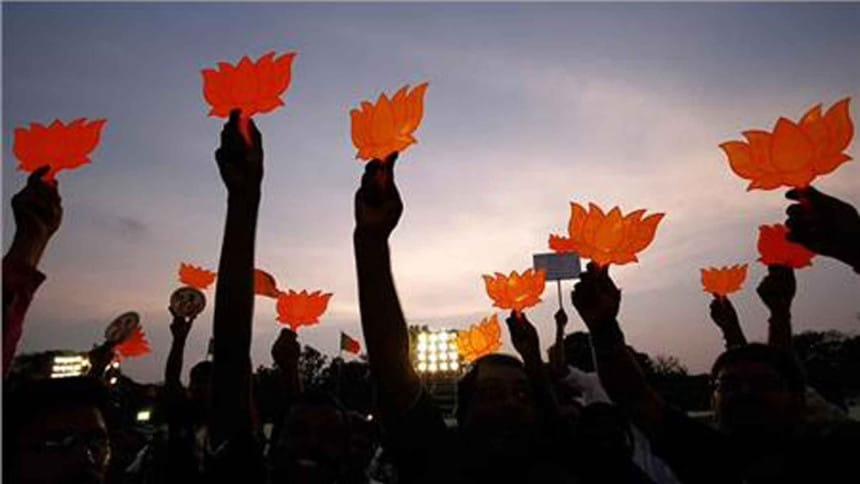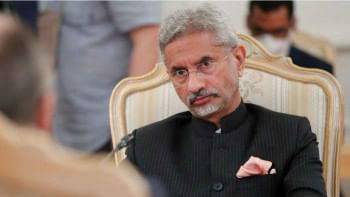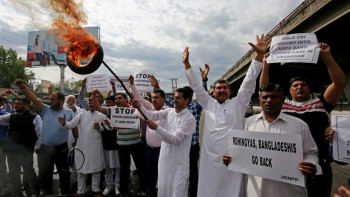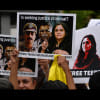India should think beyond the Hindutva agenda

Over the last few years – under the BJP government – India's religious polarisation has increased in degree and intensity. Multiple factors have contributed to the ever-expanding divide among religious communities in India, from policy-related institutionalised approaches which are divisive in nature, to the enactment of the Citizenship Amendment Act, and the implementation of the National Register of Citizens in Assam, to the more administration-related decision – that is, new rules being imposed in various states that are biased against minority communities, and petty actions such as hijab bans in educational institutions, the right-wing rhetoric of majority of BJP leaders, and the attacks on Muslim and Christian places of worship. This polarisation has resulted in the side-lining of some of India's core precepts of pluralism, polyphony, heterodoxy, and communal harmony – ethos the nation has been built upon since its independence in 1947.
The recent protests, although sparked by irresponsible, derogatory, and provocative comments by BJP spokesperson Nupur Sharma about Prophet Muhammad (pbuh), is the outcome of built-up sentiments among Muslims as a result of recent years of religious discrimination and "hate" massages they have had to endure in their own motherland.
This latest incident has not only disrupted India's internal stability, with communal unrest spreading in multiple states, but the nation has also had to face backlash from various countries, including its key trading partners in the Middle East. According to Al Jazeera, India's financial trading with the Gulf Cooperation Council (GCC) countries exceeded USD 150 billion in the fiscal year ending in March 2022. Its exports to the Gulf countries had been of around USD 44 billion, a 58 percent increase from the previous year. Indian imports from the Gulf countries stood at around USD 111 billion, an increase of about 85 percent. And these strong trade ties have now been put at risk by the provocative comments of the BJP spokesperson.
What is worrying is that using this incident as a tool, vested quarters in both the Gulf countries and in India are propagating the boycotting of trade relations. Social media is abuzz with hashtags such as #BoycottIndiaProducts and #BoycottQatarAirway. This is an alarming development, not just for India but for the overall state of global trade, as trade disruptions between India and its key trading partners in the Middle East would have a ripple effect on global trade.
These incidents should be an eye-opener for India, leading to a moment of realisation for the government that the majoritarian, right-wing policy that it is currently pursuing is highly destructive for the nation and its people.
India – the world's largest democracy, home to more than 200 million Muslims, a melting pot of diverse faiths and cultures – is also one of the fastest growing economies in the world. According to the IMF, India is projected to grow by 8.2 percent in 2022-23, compared to the 4.4 percent estimated growth for China. At this point, India cannot afford internal unrest that may hamper its economic growth.
To realise its full economic potential, India must change its current course of action with regard to its treatment of minority religious communities. Suppression of minority communities, disrespecting their basic human rights, and their rights enshrined in the Indian constitution, discriminating against them, and cornering them in their own country will only aggravate the current internal tensions which may spiral out of control in the short- to mid-term. This would be a highly undesirable development, not only for India, but also its neighbours, including Bangladesh.
The way India has so far handled the current protests through coercive actions – state government in UP bulldozing Muslim homes; law enforcement agencies unleashing force to suppress the protests, leading to two deaths – shows that the government is still perhaps under the impression that its hardline policy against minorities is the right track to be on. But this only shows that minority sentiments are at a boiling point, which need to be cooled down at the earliest, for the greater interest of the nation and of the South Asian region.
Though we appreciate the few stern, albeit belated, measures the Indian government has taken against these hate-mongering elements, further such measures are immediately called for. Those who wish India well hope that it will understand that the only way forward for the nation is religious inclusion and communal harmony. According to Mahatma Gandhi, "True religion is not a narrow dogma. It is not external observance. It is faith in God and living in the presence of God. It means faith in a future life, in truth and Ahimsa." It is this same philosophy that the current Modi government needs to revisit and internalise, principles the nation's foundation is based on.
From Ashoka to Akbar to Gandhi, everyone advocated for a healthy practice of heterodoxy and dialogues, which has sustained India's vibrant secular character. And these are deeply rooted in how Indian thoughts have been shaped over centuries; one needs only to revisit the Vedas and the two great Indian epics, The Ramayana and the Mahabharata, that are so rich in discussions and deliberations encompassing a wide array of topics, including theology, philosophy, and politics. These values and characteristics have helped the Indian democracy thrive, enabled communities to live together in harmony, and it is these same attributes that need to be reintegrated into the nation's perception of its identity for it to overcome the challenges it is facing.
The present government needs to rebuild the burnt bridges by engaging in dialogue with the aggrieved communities and assuring them of their rights and security, which should be backed up by appropriate actions, including policy interventions, in order to demonstrate the commitment of the government towards religious inclusion.
Moreover, everyone should be aligned towards common national objectives of shared prosperity and economic growth.
The government, as distinct from the BJP, needs to think beyond the Hindutva agenda, and consider the bigger landscape of Indian historic legacy and global standing. It is the core values of the nation that need to be prioritised over the agenda of a particular section, regardless of it being the majority in terms of numbers. Nothing less is expected from the world's largest democracy, with such a rich history of religious co-existence and communal harmony.
Tasneem Tayeb is a columnist for The Daily Star. Her Twitter handle is @tasneem_tayeb

 For all latest news, follow The Daily Star's Google News channel.
For all latest news, follow The Daily Star's Google News channel. 










Comments